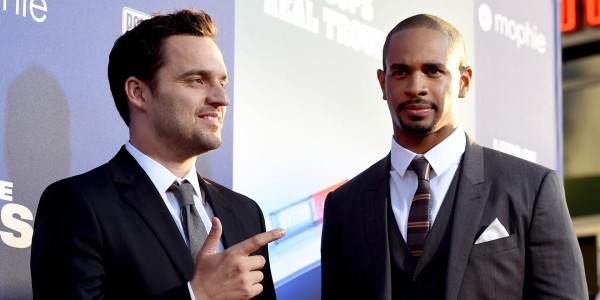The Fairness Doctrine, which forced broadcasters to offer equal time to both sides of controversial issues, was abolished in 1987, paving the way for talk radio to take the opinionated — and popular — form it has today.
Now, House Speaker Nancy Pelosi and such influential Democratic senators as Barbara Boxer and Chuck Schumer are pushing for its return, or something like it. Could the equal-time provisions pull a Don Imus and make a radio comeback?
It could, industry insiders say. And the government-mandated programing restrictions that come with it could hobble an already struggling industry. Talk-radio hosts are unlikely to accept a new Fairness Doctrine without a fight, though. Rush Limbaugh and Sean Hannity are among those already railing against it daily.
By some estimates, conservatives on talk radio dominate liberals by a ratio of 10-to-1, hence the call by some liberals to bring back the Fairness Doctrine. But Rep. Mike Pence, R-Ind., inserted language into the Federal Communications Commission's current budget barring it from being reinstated this year.
With the year drawing to an end and Barack Obama moving into the White House, talk about the Fairness Doctrine has heated up. Obama likely will name a new FCC chairman and make Democrats a majority on the five-person panel for the first time in eight years.
Addressing imbalanceObama has called on Henry Rivera, who was a commissioner in the 1980s when the Fairness Doctrine existed, to oversee the FCC transition process. Rivera is a supporter of bringing back the provisions. And heading Obama's overall transition team is John Podesta, head of liberal think tank the Center for American Progress. Last year, the CAP issued a report called "The Structural Imbalance of Political Talk Radio."
While the CAP stopped short of advocating a return of the Fairness Doctrine, it did support more stringent adherence to so-called localism, which critics consider a back door to requiring that stations ditch some of their conservative hosts.
The FCC is considering the matter now, weighing such questions as whether to require stations to create "community advisory boards" made up of "local officials and other community leaders." The boards would tell radio executives whether the content they broadcast is adequately addressing the needs of the community, subject to the board's interpretation.
"The disparities between conservative and progressive programing reflect the absence of localism in American radio," the CAP said. The group suggests that radio broadcast licenses be renewed every three years instead of eight and that stations that don't prove they are operating "on behalf of the public interest" be denied license renewals or be fined.
Slideshow 26 photos
Celebrity Sightings
Podesta suggests that fines would go to the Corporation for Public Broadcasting, which operates National Public Radio. He figures that the fees could amount to a $250 million annual transfer of wealth from radio companies to the CPB.
Podesta presented his ideas to a group of Democratic senators, including California's Dianne Feinstein. The group tossed around ideas like the Fairness Doctrine, localism and reducing the size of radio conglomerates, all in the name of making talk radio more "progressive," said Stephanie Miller, an attendee of the meeting.
"With Democrats in control, it's a whole new ballgame, and hopefully it will be good for progressive radio," said Miller, a popular liberal talk-radio host.
Miller said she's against the Fairness Doctrine and localism but noted that something needs to be done to encourage radio stations to include more liberals on their talent rosters. "I can't make the kind of money on 60 stations that (Sean) Hannity makes on 600. That's the kind of fairness I'm talking about," she joked.
Profit concernsSome radio executives fear that fines would further strain an already struggling industry. Shares of such publicly traded radio companies as Salem Communications, Citadel Broadcasting and Cumulus Media are all down more than 90 percent in the past year amid a continuing advertising slump and a weak U.S. economy.
If the Fairness Doctrine, or a version of it, returns, radio insiders say stations might opt to alter their formats entirely rather than dump some of their talk hosts for ones with less marketable track records in order to provide equal airtime to different views.
"A Fairness Doctrine wouldn't be a death knell, just Stage 3 cancer," said Tom Tradup, vice president news/talk at family- and religion-oriented station group Salem.
But localism is actually a bigger threat because the FCC could introduce it without being accused of trampling on free speech, radio host Michael Medved said. "The Fairness Doctrine is outrageous, but our chances of stopping it are excellent," he said.
Obama, for one, has said he opposes the Fairness Doctrine but supports localism.
Not surprisingly, trade association the National Association of Broadcasters is against any measures that would cast clouds over its members' ability to air profitable content, no matter what the political orientation.
"I don't want to sound sappy," NAB spokesman Dennis Wharton said, "but that's bad for America. Who thinks the government should limit free speech?"
Talk-show host Glenn Beck has been a passionate opponent of the Fairness Doctrine and localism. "Talk radio is the only format where the audience can immediately talk back," he said. "Instead of trying to silence their voices, politicians should start listening to them."
